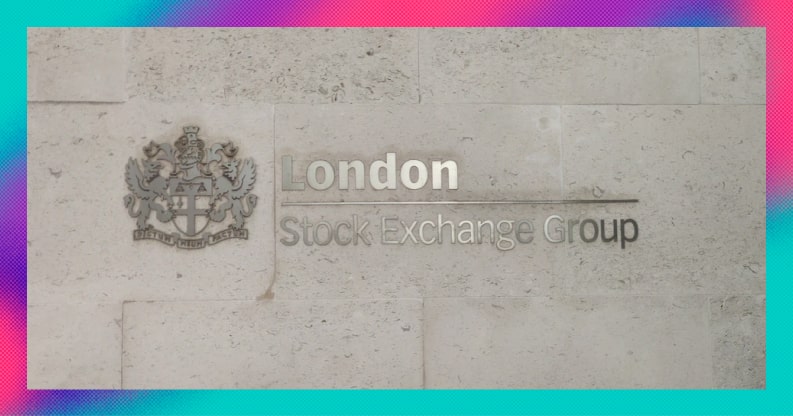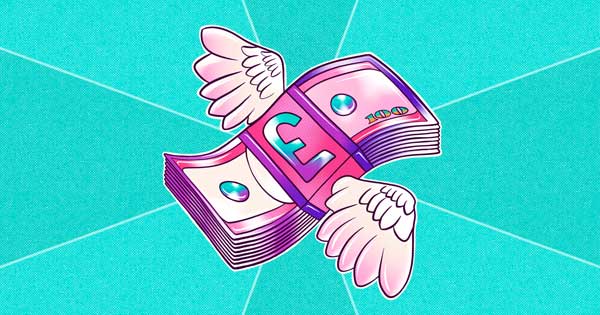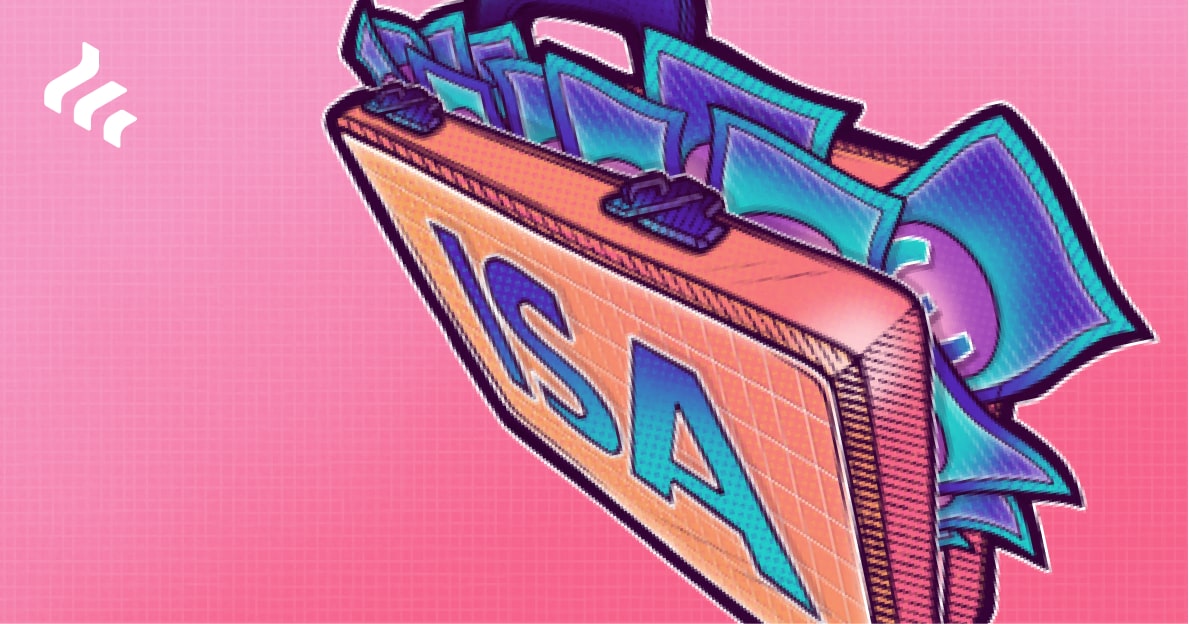Tax doesn't have to be taxing.
That's what HMRC has been telling us anyway. Sadly it can often feel like the reverse is true.
Luckily for us, investment tax rules are not too complicated. But they do have lots of little nuances that all investors should be aware of.
Understanding them won't just mean that you know what you're going to have to end up paying — it's also the best way to make sure any money you make from investing is as tax-efficient as possible.
So without further ado, here is our brief guide to UK investment tax.
Stamp duty (reserve tax)
Paid when: you buy a UK stock
This charmingly named tax applies to UK-based shares bought electronically.
It’s a standard 0.5% sales tax paid on most UK-listed stocks, but not overseas shares or ETFs listed on UK exchanges that are domiciled overseas (that’s the case for most UK-listed ETFs).
You pay the tax at the point of purchase and it’s applied to the total transaction cost. It may not seem like a huge amount but when you are making large trades it can add up to quite a lot of money, so be aware of it.
It’s also worth remembering that you pay stamp duty even if you’re buying shares from within a tax-efficient account, like an ISA or a SIPP.
Capital gains
Paid when: you realise a gain (i.e. you sell a stock or ETF for a profit)
The main tax on investment is capital gains tax (CGT).
CGT is a tax on the return of an investment from when you bought it. It applies to shares and ETFs but also other assets, like property or jewellery.
CGT only taxes gains on investments, not the total value of your holding. It applies to investments held in an investment account, but not ISAs or SIPPs (more on this later).
And the tax is only incurred when you realise the gain by cashing in the investment.
For example, you invest £10,000 into an ETF through a GIA — it gains by 10% and you now have an £11,000 position. If you sell the investment only the £1,000 gain is potentially liable for capital gains tax (more on when to sell your shares in our guide).
The CGT rate varies depending on your income taxpayer status. Rates are also subject to change from the government.
But on stock market investments in the 2024/25 tax year it applies as:
There are other limitations for whether CGT applies.
In the UK, we have a threshold before you pay capital gains tax.
Your capital gains tax allowance includes all the realised gains you make across any investments you’ve sold that year (i.e. stocks and funds, but also rental properties or art).
If your total net capital gain for the year is within the allowance (£3,000 in the 2024/25 tax year), it’s tax-free and there’s no need to report it.
Significantly, any capital losses you’ve realised that year (i.e. investments you’ve sold at a loss) count against your gains, which could keep you under the allowance.
For instance, if in a tax year, you sell one investment at a £20K gain and another at a £10K loss, your net capital gain is £10k and under the allowance.
CGT is calculated on the gain from the original date of purchase, not the growth of your portfolio year-to-year.If you’re planning to invest for the long term, the magic of compounding means £3,000 starts to become a very achievable gain on comparatively small initial investments.
There’s also no telling what the future performance of your assets will look like so it’s worth seriously considering a stock and shares ISA — the you of 2048 may be incredibly grateful.
Dividend tax
Paid when: dividends are paid on stocks you own
A dividend is a portion of a company’s profits that are paid out to shareholders - more on what are dividends in our guide. Some companies reinvest all their profits into the business and don’t pay dividends. But many still do.
Dividends are taxed as income, not capital gains. There’s a £500 tax-free allowance for dividend income for the 2024/25 tax year.
After that, any more dividend income stacks onto your overall income and is then taxed at different rates, depending on your income tax status.
After your allowances, the biggest factor on the tax you pay on investments is the account you use to invest.
How dividends are taxed over according to your tax band
In the UK, there are three main investment accounts are:
- GIA (general investment account)
- Stocks and shares ISA (individual savings account)
- SIPP (self-invested personal pension)
You can have multiple different accounts open at the same time and each have unique benefits and deficits.
Let’s dive into the essentials.
GIAs
GIAs — general investment accounts — are the simplest type of investment account offered by brokers. They generally let you invest in most types of tradable assets.
These accounts attract no tax relief, meaning they’re exposed to capital gains tax and you’ll incur tax on any gain or dividend over your total allowance.
If you do go over the dividend or CGT allowance in a GIA account, you’ll have to sort out the tax yourself through an annual self-assessment return.
You also have more of a reporting burden. If your net sales totalled beyond a certain amount — £49,200 for the 2021/22 tax year — then you have to tell HMRC.
General Investment Account sum up:
• Potentially tax-liable holdings.
• No limit on what you can add each year.
• Can invest in most securities/tradable assets.
Guide: How to open a brokerage account
Stocks and shares ISAs
Stocks and shares ISAs are special tax-wrapped accounts.
You can only add a certain amount of money into an ISA each tax year (£20,000 in the 2024/25 tax year). There are also some limits on what assets you can invest in with them, but you can own the vast majority of popular stocks and funds.
Nearly all the returns you make on ISA investments are tax exempt and don’t use up any of your total CGT allowance.
There are a couple of caveats though. Dividends on non-UK stocks are often subject to local taxes. Those are usually taken at source and you won’t be able to recoup them, even if you bought the stocks in an ISA.
ISAs also don’t exempt you from paying stamp duty on UK stocks, so be aware of the cost that tax incurs on any purchases you make.
Still, ISAs remain a tax-efficient method for investing. And over many years, it’s very easy for a pretty small portfolio to have compounded far beyond the CGT threshold. You definitely don’t want to incur tax on that return and ISAs help you keep the gains you make.
Stocks and shares ISAs sum up:
• Tax-wrapped holdings.
• Limit the amount you can add each year.
• Can invest in most securities but with a bit more limitation than a GIA.
Guide: What is an ISA
SIPPs
Self-invested personal pension (SIPPs) are pension investment accounts where the holder controls and selects the investments. Like all pensions, you can’t withdraw the money until you reach a certain age: 55 currently or 57 from 2028 onwards
You can invest in a huge range of assets with a SIPP.
Most investments and dividends in SIPPs are tax-free and don’t use up any CGT allowance. As in an ISA, taxes on non-UK stocks and stamp duty still apply.
Furthermore, as it’s a pension, you also get tax relief from the government on your contributions. These vary depending on the rate of income tax you pay.
For example, if you pay the basic rate of income tax — 20% in the 2024/25 tax year — then a £80 SIPP contribution would be topped up by an additional £20 by UK tax authorities.
There’s a limit on how much you can add into a SIPP annually and still receive tax relief (£60,000 in the 2024/25 tax year).
However, this limit varies a bit depending on factors like income and your other pensions.
Unlike an ISA, when you withdraw there is likely to be an income tax burden on the money you take out, despite the lack of capital gains tax.
Currently you can withdraw up to 25% of your SIPP without incurring any tax. Go beyond that and you’ll be subject to income tax, assuming you’ve also used up your personal allowance, which is currently £12,570.
SIPPs sum up:
• Tax-wrapped holdings, additional tax relief on contributions.
• Limit the amount you can add each year and still receive tax relief.
• Huge range of assets you can own in the SIPP.
• May incur income tax on withdrawal.
Guide: What is a SIPP
What should I do?
Most people want to keep their funds as tax-efficient as possible but also minimise the cost of their investing activity.
And because ISAs usually cost a fee, some people think they can game the annual allowance tax system and use a regular GIA to remain efficient.
Over a short period of time this might work. The problem is the majority of successful investing is built on holding for the long-term. Doing this in a GIA is much more likely to result in you having to pay CGT.
For that reason, lots of UK investors invest using a stocks and shares ISA. Yes, you might have to pay a small fee for the account but that’s generally compensated for by the tax-efficiency it offers.
Having said that, everyone invests for different reasons and if you have a pension in mind then a SIPP may be more suited to you than an ISA, although there’s nothing stopping you from taking advantage of the benefits the two accounts offer.
Lastly, the GIA shouldn’t be completely disregarded. If you have the financial means to use up your ISA’s annual allowance, it will probably make sense for you to invest with one.
Learn more:
How to invest in the stock market
Savings vs investing - which is better?
Detailed guide to investment risk
How to choose the best investment app
We think investing should be open to everyone. It shouldn’t be complicated, and it shouldn’t cost the earth. Our stock trading app makes it simple for both beginners and experienced investors. And costs are low. You can buy and sell shares commission-free and take advantage of fractional shares (buy just a part of a share).
Important information
ISA and SIPP eligibility rules apply. Tax treatment depends on personal circumstances and current rules may change.
A SIPP is a pension designed for you to save until your retirement and is for people who want to make their own investment decisions. You can normally only draw your pension from age 55 (57 from 2028), except in special circumstances.
At present, Freetrade only supports Uncrystallised Fund Pension Lump Sums (UFPLS) for customers who wish to withdraw funds from their SIPP after their 55th birthday. We strongly encourage you to seek financial advice before making any withdrawals from your SIPP.






















